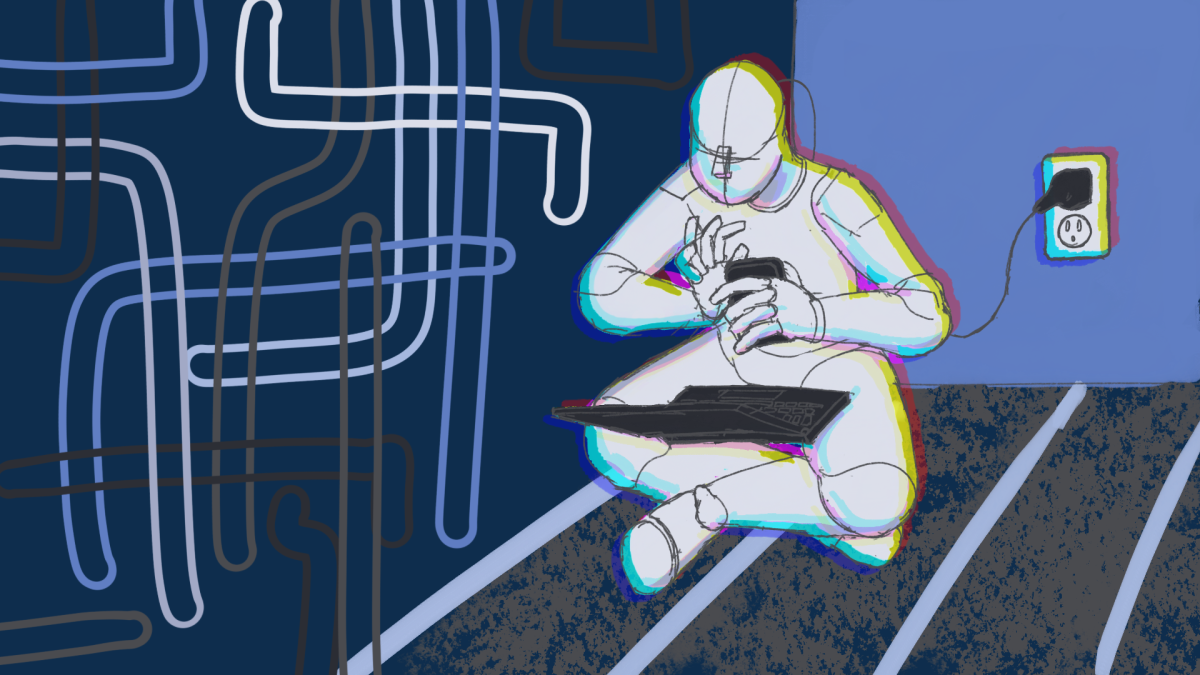The last few elections of this country have brought to light an increasing ideological divide. With fringe political groups such as the tea party and the Occupy Wall Street movement rising, political polarization and disagreement have grown. Both sides were assertive in driving forward their policies.
A fairly recent illustration of such division is the political commotion caused by the Affordable Care Act. The disagreement concerning this law remained so great that last fall, members of our legislative branch refused to pass the budget unless their demands to defund the ACA were met.
Many of these legislators justified their actions by declaring the law un-American. They claimed the law to be immoral by nature because it forced Americans to fund a law many of them personally disagreed with. The justification offered by these representatives necessitates a question about our political system: Is it morally acceptable to tax citizens when those tax dollars are directed toward laws, policies and programs with which many of those same citizens morally disagree?
To adequately consider this question, it is important to first observe the way our country currently operates. Many people in this country believe it’s immoral to perform abortions. However, abortion is both legal and publicly funded by many of these same citizens’ tax dollars.
Many believe it to be morally wrong to use our military power to kill any human in the name of greater justice.
Despite this, the United States has continued to intervene in foreign affairs in the name of justice, causing incalculable casualties throughout the last 50 years. Many of these pacifists’ tax dollars have gone to the portion of the national budget spent on defense, which, according to the Center on Budget and Policy Priorities, is 19 percent, $689 billion, annually.
Additionally, according to a mid-February study by the Pew Research Center, nearly half of Americans believe the death penalty to be wrong. Despite this, the U.S. has performed 769 executions since the year 2000, according to the Death Penalty Information Center.
As has been seen, our country operates in a manner in which citizens will not always see their personal viewpoint legislated. All of these people still have to pay their taxes, though their tax dollars are partially directed toward policies and programs with which they may morally and fundamentally disagree. This may sound rather unfair in one sense. However, this is the system of democracy on which the U.S. is built.
Conceptually speaking, the government of this country is controlled by its citizens through representative elections. Those chosen to write, pass and enforce our laws are public servants to those who elected them. This is the system to which all who choose to live within the U.S. as citizens agree. In exchange for your voice being represented in society, you pay taxes that go toward running the country and policies that your representatives enact.
This is the cost and beauty of living in a country of democracy. As a citizen, you are never guaranteed the policies you support will become law. However, you are guaranteed a voice through voting. You have an equal stake in the game like all other citizens of this country. By participating in and agreeing to live under this system, you agree to abide by its laws, whether they are your preference, the preference of the majority or both.
In a country as polarized as the U.S., it becomes evident that this democracy will create laws with which many of its citizens disagree. These differences don’t grant the right to consider oneself above the social contract of this country. However, this is what happened last fall when members of congress refused to pass the budget appropriating funds for the next fiscal year.
These officials attempted to rise above the basic contract of democracy, causing the government to default on its most fundamental promise: that it will run. When the government of this country becomes incapable of upholding its moral responsibility of democracy for the citizens who put it in place, it’s no surprise those citizens would question the morality of paying their taxes.
Send your thoughts to Josiah at [email protected].





